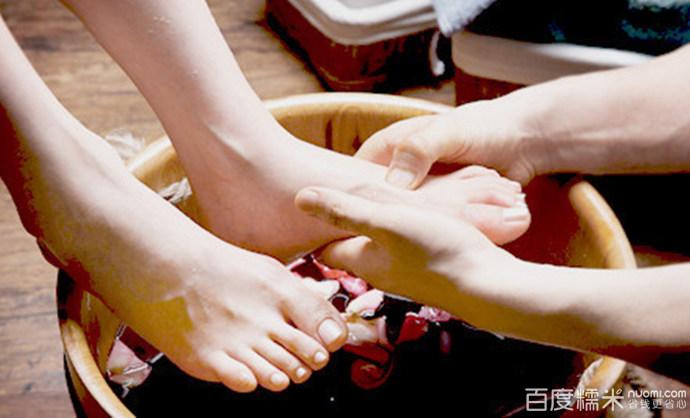- 本文目录导读:
- Introduction
- Understanding the Impact of Diabetes on Foot Health
- Diabetic Foot Therapy: A Multi-Faceted Approach
- Regular Foot Examinations
- Foot Hygiene
- Foot Exercises and Stretches
- Footwear Management
- Managing Blood Sugar Levels
- Early Intervention and Wound Care
- Conclusion
Introduction
Diabetes, a condition characterized by high blood sugar levels, can lead to various complications, one of which is diabetic neuropathy, a condition that affects nerve function, particularly in the feet and legs. This can result in numbness, tingling, and, in severe cases, the development of diabetic foot ulcers, which can be particularly difficult to heal. Proper foot care is crucial in managing diabetes to prevent complications and maintain overall health. This article delves into the importance of diabetes foot therapy, offering insights and practical tips for nurturing your feet.
Understanding the Impact of Diabetes on Foot Health
Diabetes can lead to several foot-related issues, including diabetic neuropathy, which is characterized by loss of sensation in the feet. This can make individuals unaware of injuries, burns, or other foot problems, leading to further complications. Additionally, high blood sugar levels can weaken blood vessels and reduce blood flow, making the feet more susceptible to infections and wounds that may not heal properly.
Diabetic Foot Therapy: A Multi-Faceted Approach
Diabetic foot therapy involves a comprehensive approach to foot care, encompassing preventive measures, early intervention, and ongoing care. Key components include:

1. Regular Foot Examinations
Regular check-ups by a healthcare professional are essential to detect any early signs of complications. This includes checking for wounds, infections, and changes in skin color, texture, and temperature. Early detection allows for timely treatment and reduces the risk of complications.
2. Foot Hygiene
Maintaining good foot hygiene is crucial. This involves keeping the feet clean and dry, trimming nails properly, and avoiding tight or restrictive footwear. Moisturizing the skin can help prevent cracks and dryness, which can lead to infections.
3. Foot Exercises and Stretches
Regular exercise can improve circulation and strengthen muscles, reducing the risk of foot problems. Simple exercises like toe curls, ankle rotations, and toe raises can be done daily to maintain foot health.

4. Footwear Management
Wearing properly fitted, comfortable, and supportive shoes is vital. Shoes should provide ample room for the toes, have a soft inner lining, and be made of breathable materials to prevent moisture buildup and reduce friction.
5. Managing Blood Sugar Levels
Maintaining stable blood sugar levels is fundamental in preventing and managing diabetic foot complications. Regular monitoring, medication adherence, and a healthy diet play critical roles in achieving this.
6. Early Intervention and Wound Care
Prompt treatment of any wounds or infections is crucial. This includes keeping wounds clean, applying appropriate dressings, and seeking medical advice if lesions do not heal or worsen over time.

Conclusion
Diabetic foot therapy is a vital aspect of diabetes management, focusing on the prevention, early detection, and treatment of complications. By incorporating a holistic approach to foot care, individuals with diabetes can significantly reduce their risk of developing serious foot conditions. Regular check-ups, proper hygiene, foot exercises, and management of blood sugar levels are key components in nurturing healthy feet and maintaining overall wellness.
转载请注明:成都会所桑拿-四川成都休闲桑拿推荐论坛! » 足疗保健 » Diabetes and Foot Care: A Comprehensive Guide to Nurturing Your Feet
版权声明
本文仅代表作者观点,不代表成都休闲网立场。
本文系作者授权发表,未经许可,不得转载。





























